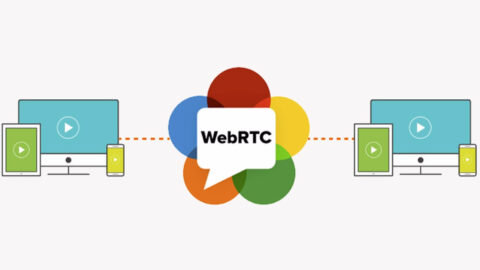A Guide to Proxies: Working and Benefits
When you log into your computer to browse the internet, you expose yourself to countless cybersecurity threats, malware, and cyberattack vulnerabilities. Your personal information is continuously at risk; anyone can easily track your online activity. However, there are several ways to maintain your privacy. For instance, you can use online VPN services and proxy providers to make your IP address untraceable. In this article, we will explore the benefits of using proxies for your online activities in this Guide to Use Proxies.
Table of Contents
Proxies vs. VPNs: Guide to Use Proxies
Both proxy and VPN are online services that can encrypt your web activities, preventing cyber attacks from entering a private network. However, VPNs are superior to a proxy as they can encrypt all web activity, while a proxy can only encrypt the IP address of a single website.
The proxy server has its own Internet Protocol address that allows you to appear as if browsing from a different location. With VPNs, traffic travels over an encrypted tunnel between the remote VPN network and the user’s computer or device. VPNs are set up similarly to firewalls or web filters and safeguard your devices from cyber danger.
How Proxies Work?
Proxies are intermediary servers that sit between a client computer and a destination server. When a client sends a request to access a particular resource on the internet, the proxy server receives the request first, then acts as an intermediary between the client and the server.
The proxy server can either allow or block the request from reaching the destination server. If the request is allowed, the proxy forwards it to the destination server and retrieves the response. The response is then returned to the client through the proxy server.
Another tip from guide to use proxies is they can hide a user’s IP address by replacing it with the proxy server’s IP address. This can help users maintain their online privacy and security. As well as bypass internet restrictions and firewalls.
There are different types of proxies available, including HTTP proxies, HTTPS proxies, SOCKS proxies, and transparent proxies. Each type has its own specific use case and advantages depending on the intended application.
The Benefits of Using Proxies
Proxies allow clients to access information stored in various servers while keeping their anonymity. Let’s discuss the benefits of using proxies further.

1. Your Private Information Is Safe
Most sites that you visit collect data from their users to some extent, although the degree of every website’s tracking is different and may never be discovered. However, some statistics reveal that around 79% of websites online save user information by using cookies and other related tracking methods.
Using Proxies Guide can provide you with a certain level of security by altering your IP address or any other information that could be used to identify you on the web. You may appear from an IP address utterly different from yours when using proxies. This ensures that your privacy and information are safe if you use a proxy. Proxies can act as a barrier between your device and the internet, protecting your identity by hiding your IP address and preventing others from tracking your online activities. By using a proxy server, you can browse the internet anonymously, since your IP address is hidden and replaced with the proxy server’s IP address.
2. You Can Log In From Multiple Locations
Several common-use websites are banned in some countries for political, geographical, or social reasons. The same is true for certain tv shows on streaming platforms like Netflix. However, in our guide to use proxies can get you access to all these unavailable websites and media by signing you in from different prominent locations throughout the globe. Most proxy services give their customers the freedom to choose where they want their specific IP address to originate from. Proxies can also help find local data for research purposes. So finding location-specific demographic data become easy by using proxies.
Bypass geolocation restrictions. Some content on the internet is not open to certain geographic regions. By using a proxy with an IP address located in the desired region, you can bypass these restrictions and access the content you need.

3. You Get Better Speed
VPN can slow down your connectivity over the web. However, private proxies are an easy fix to this issue in our guide to use proxies. A private proxy offers a unique IP address only used by the owner of the IP address, ensuring bandwidth is unlimited with no traffic at all. Additionally, these dedicated proxies are safer and more reliable than shared public proxies. Proxies can distribute incoming requests across multiple servers, which can help balance the load and ensure that no single server becomes overloaded. This can improve website speed and reliability for users.
4. You Get Control Over Internet Access
Where proxies allow you to access all the banned and restricted websites in your area, they also allow you to ban certain websites from your IP address. So, if you are a boss or a parent trying to keep your children’s or workers’ online activity monitoring, you can do so by placing bans and logging web requests through your exclusive proxy. Proxies can restrict access to certain websites or online services, making it easier to manage access to sensitive information.
Endnote on Guide to Use Proxies
You should use a proxy if you value online anonymity and are willing to take that extra step to secure your data. A better idea is to use private proxies that cost as low as one dollar per proxy. This allows you to have a completely exclusive IP address for your dedicated use. And it is compatible with all devices, tools, and applications.

Adhar Dhaval is experienced portfolio, program and project leader with demonstrated leadership in all phases of sales and service delivery of diverse technology solutions. He is a speaker sharing advice and industry perspective on emerging best practices in project leadership, program management, leadership and strategy. He is working for the Chair Leadership Co.










